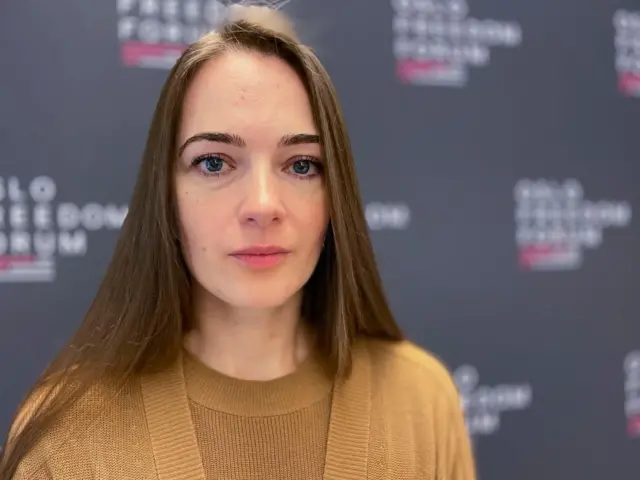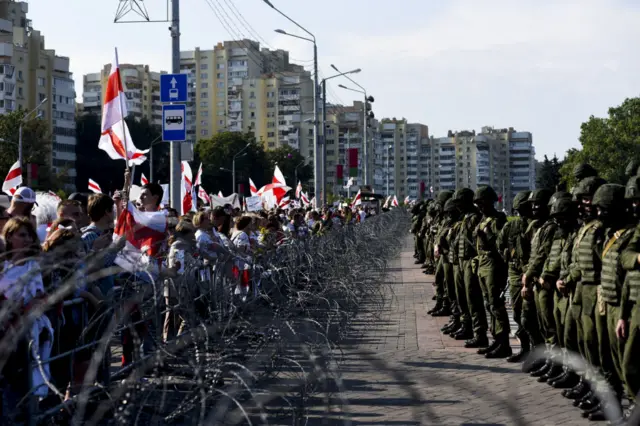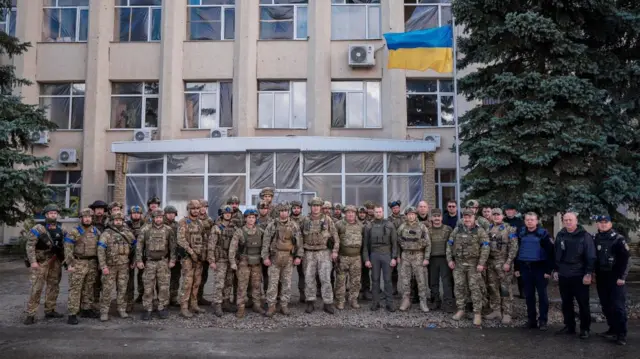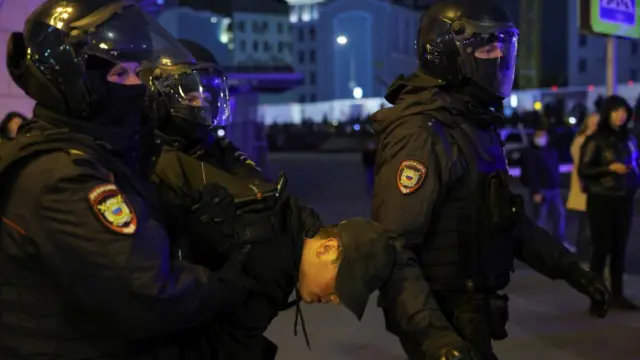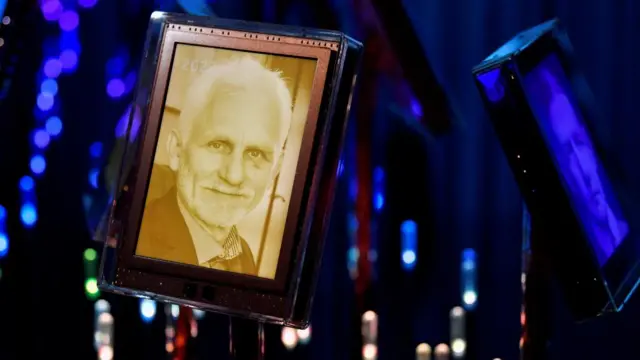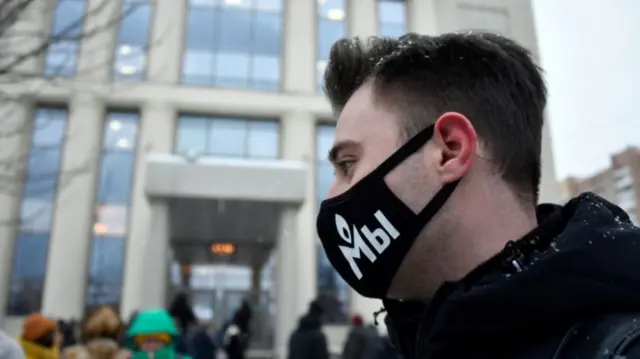What happened today?published at 14:45 British Summer Time 7 October 2022published at 13:45 7 October 2022
WATCH: Moment Nobel Peace Prize 2022 winners announced
Thanks for following our live coverage of the Nobel Peace Prize announcements in Oslo.
Here's a look back at what happened today.
- The winners of this year's peace prize were revealed to be Belarusian human rights activist Ales Bialiatski; the Ukrainian Center for Civil Liberties (CGS) which documents alleged war crimes; and Memorial, a rights group banned in Russia
- Bialiatski's wife said she was "overwhelmed with emotion"; his compatriot, the dissident Svetlana Tikhanovskaya, said it represented "important recognition"
- CGS said it was proud of the accolade and called for an international tribunal to bring Russian President Vladimir Putin to justice
- Memorial was notified of the prize on the same day that its staff attended a court case in Moscow relating to the seizure of the group's premises. The organisation was broken up by Russia's judiciary late last year
- Belarus said the prize's founder Alfred Nobel would be "turning in his grave"; a Russian presidential adviser said the prize was meaningless
- The United Nations has said it will appoint a special expert to monitor human rights in Russia
Today's page was brought to you by Ruchira Sharma, Laura Gozzi, Alys Davis, Anna Boyd, Jennifer McKiernan, James Harness and James FitzGerald.
